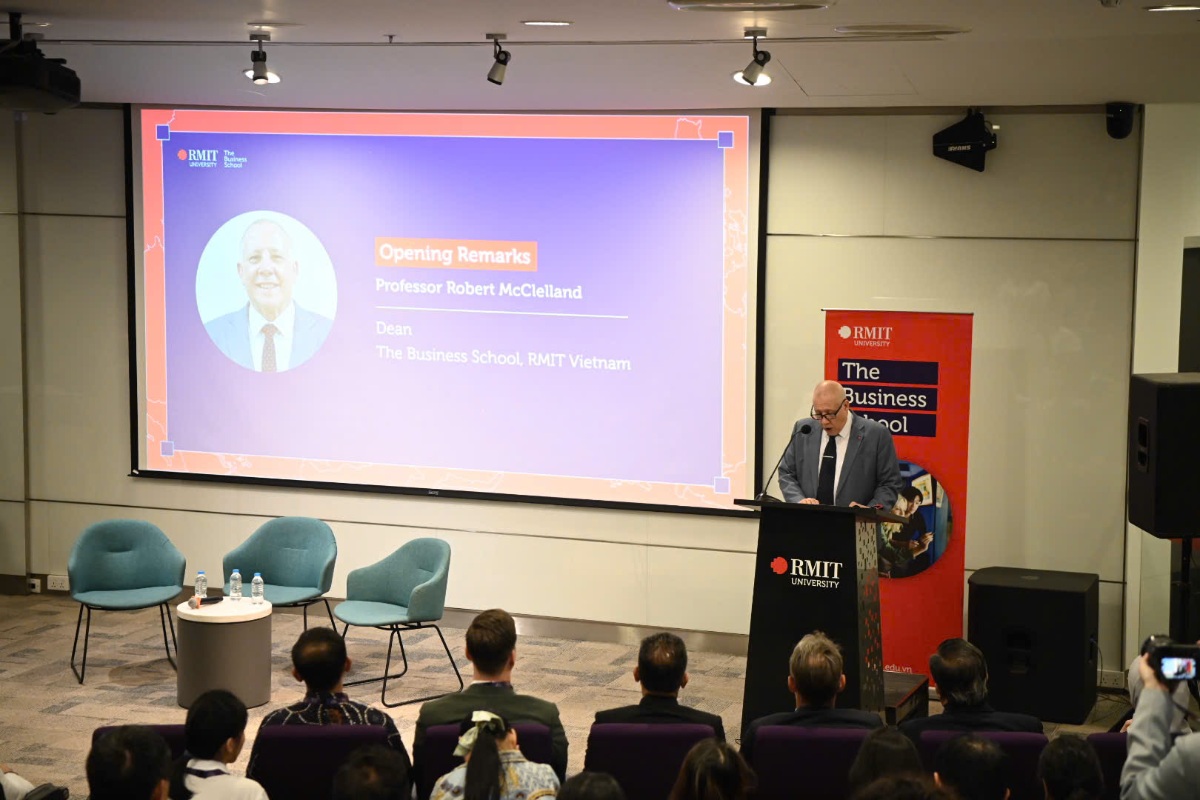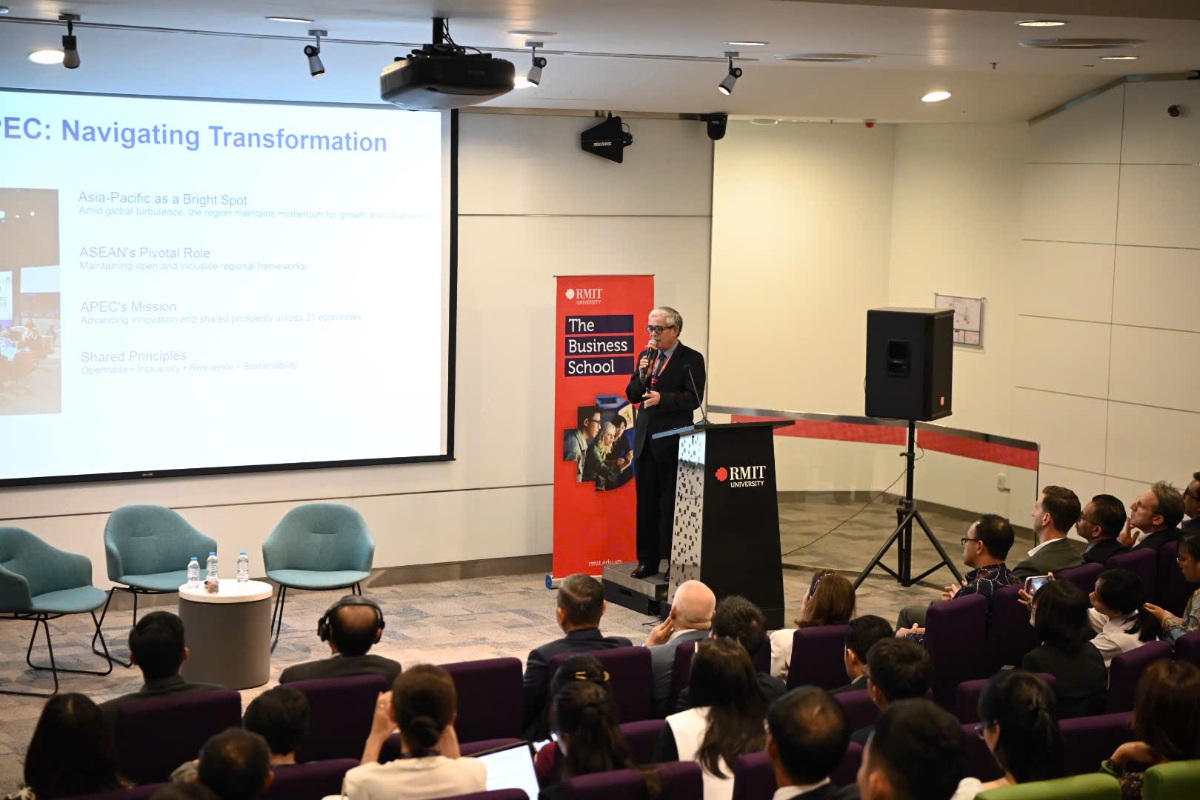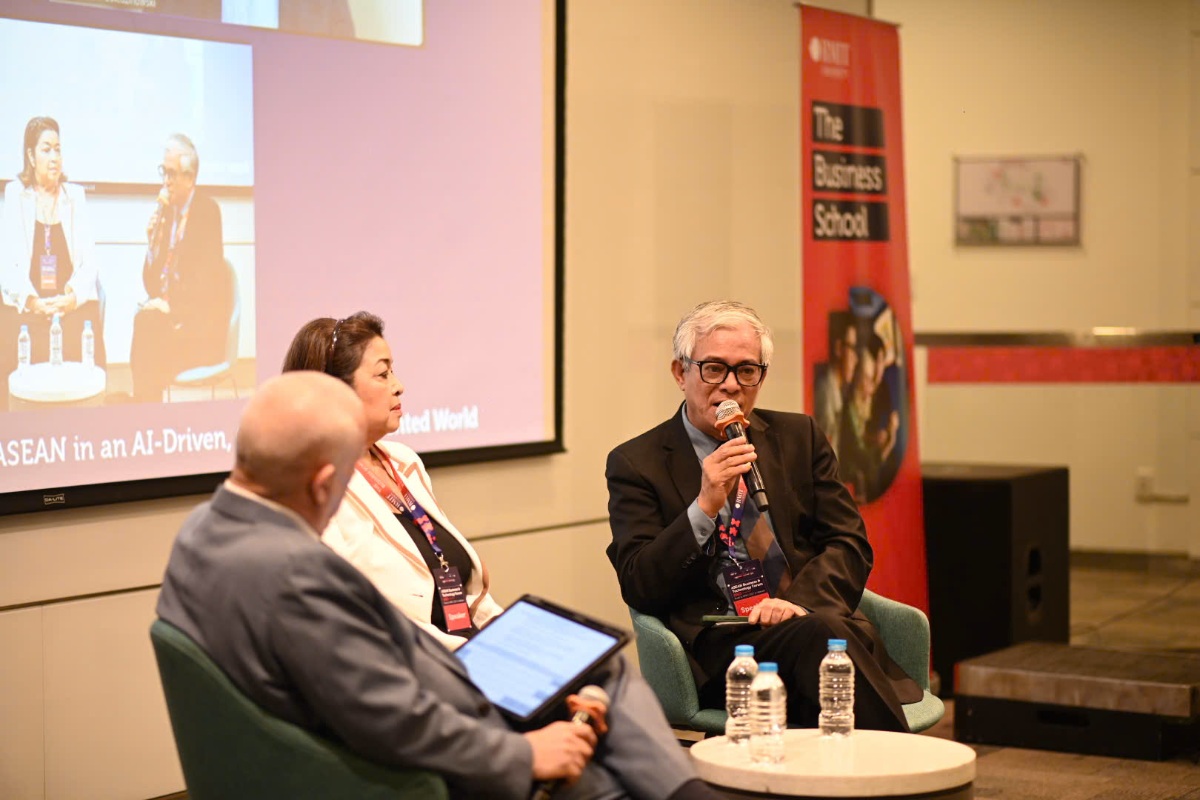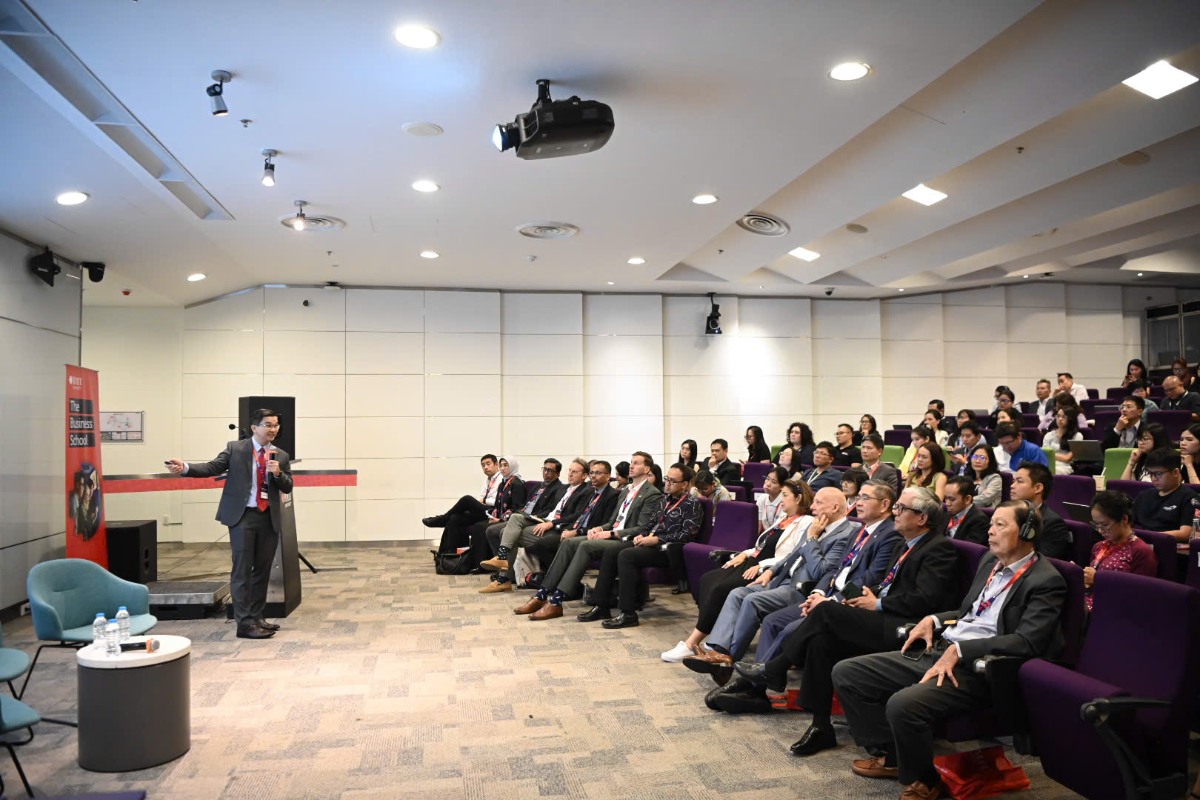
The ASEAN Business and Technology Forum (ABTF) 2025 took place at a critical juncture for the region, as ASEAN confronts geopolitical uncertainty, tariff shocks, the imperatives of the green transition and the rapid advance of artificial intelligence and the digital economy. As host of APEC 2027, Vietnam is expected to work with its ASEAN partners to set a long-term roadmap for inclusive and sustainable growth.
In his opening remarks, Professor Robert McClelland, Dean of The Business School at RMIT Vietnam, emphasised the university’s regional commitment.
“RMIT’s 2031 strategy, Knowledge with Action, affirms our commitment to be a leading university of impact in the Asia–Pacific. Across ASEAN and the wider region, this commitment is expressed through three directions: lifelong, work-integrated learning; research and innovation that generate positive impact; and service to the community,” he said.
“Building on our strengths in emerging technologies, smart and sustainable cities, social innovation and regional collaboration, we work alongside government and business to deliver practical outcomes, enhance competitiveness and promote shared prosperity.”
 Professor Robert McClelland, Dean of The Business School at RMIT Vietnam, delivered the opening remarks, affirming RMIT’s commitment to knowledge sharing and regional collaboration. (Photo: RMIT)
Professor Robert McClelland, Dean of The Business School at RMIT Vietnam, delivered the opening remarks, affirming RMIT’s commitment to knowledge sharing and regional collaboration. (Photo: RMIT)
Professor McClelland’s remarks set the stage for the keynote address by Ambassador Pham Quang Vinh, former Vietnamese Ambassador to the United States, who spoke on ASEAN’s business priorities for APEC 2027.
Mr Vinh highlighted the importance of consensus: “On the journey to hosting APEC 2027, Vietnam hopes to work with ASEAN and APAC to set long-term shared priorities, from the digital economy and green trade to regional connectivity. This is not only an opportunity for Vietnam to demonstrate leadership but, more importantly, to help ASEAN build a firm foundation for inclusive, sustainable and adaptive development.”
“Forums such as today’s at RMIT Vietnam help pave the way for recommendations to become practical and closely aligned with the common interests of the entire region,” he added.
 Former Vietnamese Ambassador to the United States Pham Quang Vinh. (Photo: RMIT)
Former Vietnamese Ambassador to the United States Pham Quang Vinh. (Photo: RMIT)
The plenary panel that followed, chaired by Professor McClelland, brought together former ambassadors and regional thought leaders from across ASEAN and Australia. The discussion ranged from tariff shocks and supply-chain realignments to interoperability standards and talent mobility, stressing the need to convert dialogue into measurable pilots that give businesses confidence and keep ASEAN integrated.
“One of the lessons from Australia’s partnership with ASEAN is that connectivity is not only about trade flows but also about people and skills. If we can create more predictable pathways for talent mobility and recognise professional qualifications across borders, we will give our economies a sharper competitive edge,” said former Australian Ambassador to Vietnam Andrew Goledzinowski.
 The plenary panel brought together former ambassadors and regional experts to discuss ASEAN’s competitiveness in the era of AI, green transition, and shifting geopolitics. (Photo: RMIT)
The plenary panel brought together former ambassadors and regional experts to discuss ASEAN’s competitiveness in the era of AI, green transition, and shifting geopolitics. (Photo: RMIT)
With contributions from experts representing Sunway University, the Australian APEC Study Centre, the Australian Trade and Investment Commission (Austrade), RMIT, the National University of Singapore, Amazon Web Services, New Energy Nexus Vietnam, GUILD Asia and Universitas Padjadjaran, the forum then moved into three parallel tracks that translated broad themes into tangible priorities:
One stream looked at how ASEAN can convert trade commitments into real opportunities, with discussions on resilient supply chains, intra-ASEAN trade and the practicalities of mobility through new visa and shipping corridor initiatives.
Another focused on the digital economy, where speakers examined how the ASEAN Digital Economy Framework Agreement can be implemented in practice and debated the balance between accelerating AI adoption in finance and public services and the urgent need to expand digital infrastructure.
The third track highlighted the green transition, showing how transition finance, renewable energy and EV corridors could be scaled through dynamic startup ecosystems, with case studies from Vietnam, Singapore and Indonesia illustrating both challenges and early successes.
Professor Trung Nguyen, Interim Deputy Dean (Engagement and International) at The Business School, RMIT Vietnam, underlined the forum’s practical orientation. “ABTF 2025 is not only a place for dialogue but also a forum for action. In line with RMIT’s strategic ethos of knowledge with action, we connect government, business and academia to co-define shared priorities and feasible solutions for ASEAN as it faces the waves of AI, the green transition, geopolitical uncertainty and tariff challenges. Our focus is to move from discussion to deployment, making a meaningful contribution to the roadmap for APEC 2027 in Vietnam.”
 Professor Trung Nguyen, Interim Deputy Dean (Engagement and International) at RMIT Vietnam, highlighted ABTF 2025 as a “forum for action” connecting government, business, and academia. (Photo: RMIT)
Professor Trung Nguyen, Interim Deputy Dean (Engagement and International) at RMIT Vietnam, highlighted ABTF 2025 as a “forum for action” connecting government, business, and academia. (Photo: RMIT)
As a tangible next step, the organisers announced the preparation of the Phu Quoc 2027 ASEAN Business & Technology Policy Brief, a bilingual policy publication distilling insights from the forum into recommendations for ASEAN policymakers and business leaders. The Brief is expected to be released shortly after the event, providing timely input for regional discussions on the road to APEC 2027.
Story: Quan Dinh H.
The explosive growth of affiliate marketing across social media and e-commerce platforms is exposing significant legal and ethical risks, according to experts from RMIT Vietnam.
Under the MoU, both parties will collaborate to enhance Vietnam’s enterprise competitiveness and national branding efforts in domestic and international markets.
Hidden costs in the supply chain could price some Vietnamese exporters out of Europe.
A UN Women-RMIT partnership is helping advance leadership capability and support Vietnam’s SME development agenda.